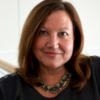Power to the People: Community Voices in Urban Decision-Making
Synopsis
University faculty can bring a wealth of resources, research projects, and eager students into communities around the corner and across the globe. But do communities always benefit from these relationships, or do they pay a price? This semester’s Open Classroom will explore a variety of community-centered research initiatives grounded in racial and social justice values and a commitment to working with community members as co-equals.
Previous Sessions
Many universities pride themselves on engaging with communities near their campuses and around the world, but are these relationships mutually beneficial? Grounded in racial and social justice values, the Social Impact Lab’s Principles of Anti-Oppressive Community Engagement for University Educators and Researchers call upon universities to recognize and mitigate the unintended harms that can result from well-intentioned initiatives that fail to treat community stakeholders as equals. Panelists will discuss how the principles may be applied to their work in Boston and globally.
- Lisa Laguerre, Associate Director of Community Relations, Institute on Race and Justice
- Sam Williams, Community Advisory Board Co-Chair, Institute on Race and Justice
- Sam Vaghar, Executive Director, Millennium Campus Network
- Catarina Vallada, Fellow, Millennium Fellowship
- Mariana Torquato, Fellow, Millennium Fellowship
Recording available here.
We bring our experiences to our roles, and Boston’s child care leadership is no different. This panel features four of Boston’s most innovative leaders in child care–all of whom have “on-the-ground” or “in-the-field” experience. Professor Kimberly D. Lucas, whose research focuses on Boston’s early childhood market, will kick off the session, and then will quickly turn it over to Gloria Valentin-Denson, owner of The Children’s Garden, and Cari Moore, early educator at Ellis Early Learning, who will facilitate a candid discussion that explores the value of lived experience in leadership, the importance of collaboration in early childhood innovation, and the balance of anxiety and hope in Boston’s child care sector.
- Kim Lucas, Professor of the Practice in Public Policy and Economic Justice
- Gloria Valentin-Denson, Pre-School Teacher and Owner, The Children’s Garden
- Cari Moore, Early Educator, Ellis Early Learning
- Wayne Ysaguirre, Principal, Ysaguirre Consulting
- TeeAra Dias, Universal Pre-K Director, Boston Public Schools
- Binal Patel, Chief Program Officer, Neighborhood Villages
- Anne Douglass, Executive Director, Institute for Early Education Leadership & Innovation; Professor, UMass Boston
Recording available here.
There are over 2.5 million people working on farms in the United States, a majority of whom are not U.S. citizens. They face a number of justice-related issues, including occupational injury and illness, lack of access to healthcare, substandard housing, hunger, low wages, issues pertaining to immigration, the inability to organize, and exposure to agricultural chemicals and climate change impacts. Given their often precarious employment status, lack of documentation, cultural practices and beliefs, and the migratory nature of their work, it is vital to have documented evidence of the impacts of these injustices. It can be at best logistically difficult to conduct the research necessary for advocacy and at worst such research can further exploit these workers and exacerbate these injustices. In this session, you’ll hear from activists and researchers about their work with one another and with farmworkers, the unseen hands that feed us all.
- Becca Berkey, Director of Community-Engaged Teaching and Research; Guest Lecturer, Human Services Program
- Maria Carmona, Immokalee Area Coordinator and Organizer, Farmworker Association of Florida
- Jeannie Economos, Coordinator for the Pesticide Safety and Environmental Health Program, Farmworker Association of Florida
- Joan D. Flocks, Director of the Social Policy Division Center for Governmental Responsibility, University of Florida
- Joseph Grzywacz, Norejane Hendrickson Professor, Florida State University
- Benita Lozano, Paralegal, Migrant Unit of Florida Rural Legal Services; Member, Farmworker Association of Florida Board of Directors
Recording available here.
Participatory modeling is a collaborative stakeholder-driven approach to formalize shared representations of a problem and, through the joint modeling process, design and test solutions to that problem. This promising approach has become increasingly established as a field of scholarship and practice within the broader umbrella of knowledge co-generation and participatory action research, but not without its challenges. This panel will explore the various aspects that shape this field: past and future trajectories, ethical stakeholder engagement, training and literacy, assessment, and funding.
- Moira Zellner, Professor of Public Policy and Urban Affairs; Director of Participatory Modeling and Data Science
- Renee Wallace, Executive Director, Doers Edge
-
Dan Milz, Assistant Professor, University of Hawaiʻi at Mānoa
- Miles McNall, Director for Community-Engaged Research, Michigan State University
- Leilah Lyons, Program Director, National Science Foundation
Recording available here.
This panel will formally launch Fora.ai, a new participatory modeling platform developed at Northeastern University. Fora.ai makes it simple for groups to come together to understand real world problems and create novel solutions in real time, using a simple digital environment. Communities can reshape how they engage and collaborate on climate and social justice issues by building a digital interactive representation of the problem with input from other key stakeholders, then iteratively revising and testing solutions until diverse needs are addressed. Fora.ai provides immediate simulation results for data-driven proof of concepts that are ready to be presented, designed, and implemented in the real world, giving everyone on your team the power to share their unique perspective and build the world they want to live in together.
- Moira Zellner, Professor of Public Policy and Urban Affairs and Director of Participatory Modeling and Data Science, Northeastern University
Recording available here.
The top 10 richest billionaires in the world doubled their wealth since the beginning of the pandemic while 99% of people are worse off economically. Financial transformation is needed to stop this devastating exploitative and extractive concentration of wealth and power. How can universities invest in local communities to disrupt rather than perpetuate economic injustice? How can Northeastern, an anchor institution, partner and collaborate with Boston-based organizations that are advancing economic justice? Come learn about two inspiring local organizations focused on transformative economic justice, the Boston Ujima Project and the Center for Economic Democracy.
- Jennie C. Stephens, Director, School of Public Policy and Urban Affairs
- Nia K. Evans, Executive Director, Boston Ujima Project
- Jock Payten, Interim Managing Director of the Ujima Fund, Boston Ujima Project
- Alex Papali, Director of Regional Economies, Center for Economic Democracy
Recording available here.
In recognition of Sexual Assault Awareness Month (SAAM), this session takes seriously the idea of an “open classroom” approach to addressing the difficult and widespread problem of sexual violence. Using the class as a platform, we will imagine a world without sexual violence and discuss/create projects that intervene in rape culture. Our speakers will focus on one organization, the Boston Area Rape Crisis Center (BARCC). Panelists will speak from their perspectives about what it looks like for colleges and community organizations to work together on a social justice issue like rape culture.
- Régine Michelle Jean-Charles, Director of Africana Studies, Dean’s Professor of Culture and Social Justice, and Professor of Africana Studies and Women’s, Gender and Sexuality Studies
-
Casey Corcoran, Youth Sexual Violence Prevention Education Director, Boston Area Rape Crisis Center
- Berlindyne Elie, Juris Doctor Candidate, Boston College
-
Kate Kemp, Student, Boston College
Recording available here.
In response to growing awareness that longstanding practices in the nonprofit sector and philanthropy can perpetuate inequity by prioritizing donors’ interests and perspectives over communities’ needs and lived experiences, exciting conversations are happening throughout the industry about how to reimagine the distribution of resources intended to effect social change. This conversation will engage emerging Boston nonprofit and philanthropic leaders who are reimagining fundraising and grantmaking with greater emphasis on trust, collaboration, and capacity building.
-
Liza Behrendt, Associate Director, Resource Organizing Project
- Yani Burgos, Co-Director of Resource Redistribution, Resist; Co-Founder, Movement Sustainability Commons
-
Aditi Dholakia, Social Justice Philanthropy Fellow, Social Innovation Forum; Master of Public Administration Student, Northeastern University
Recording available here.
In partnership with the Climate Justice and Sustainability Hub
Earlier this year, Northeastern unveiled plans to establish a Climate Justice and Sustainability Hub. This raises some important questions. How can the Hub support and connect the climate justice movements on and off campus? What is Northeastern’s role in these movements? How will the University address gentrifying neighborhoods and Boston’s housing crisis? Join the Climate Justice and Sustainability Hub to explore these questions and more. Refreshments and a reception to follow.
Panelists:
- Dr. Atyia Martin, All Aces Inc. (Moderator)
- Karl Reid, Senior Vice Provost and Chief Inclusion Officer, Northeastern University
- Joan Fitzgerald, Professor of Public Policy and Urban Affairs, Northeastern University
- Adele Andrews, Hub Coordinator, Sunrise Northeastern
Recording available here.
Sign Up for Updates
Please note: If you are signing up for Open Classroom updates, other event-related announcements, and/or information about our programs, you will also receive our monthly newsletter. We will not distribute your contact information to any third party at any time.


